US flight delays, cancellations accelerate as air traffic controller shortages surge
The government shutdown, which has reached a record 40 days, has led to shortages of air traffic controllers who, like other federal employees, have not been paid for weeks.
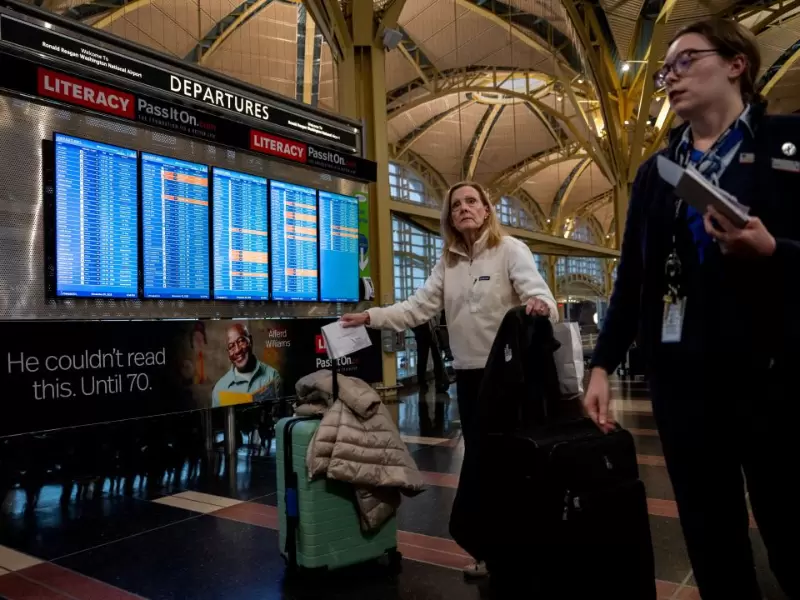 An airport staff member helps a traveler at Ronald Reagan Washington National Airport, more than a month into the ongoing U.S. government shutdown, in Arlington, Virginia, U.S., November 9, 2025. / REUTERS/Annabelle Gordon
An airport staff member helps a traveler at Ronald Reagan Washington National Airport, more than a month into the ongoing U.S. government shutdown, in Arlington, Virginia, U.S., November 9, 2025. / REUTERS/Annabelle Gordon
Hundreds of thousands of travelers had their flights delayed or canceled on Nov. 9 in the worst day for disruptions since the start of a U.S. government shutdown, as Transportation Secretary Sean Duffy warned of worse to come in the run-up to the Thanksgiving holiday.
Airlines canceled more than 2,800 U.S. flights and delayed more than 10,200 on Nov. 9 in the third day of government-mandated flight cuts due to rising air traffic control staffing shortages, after thousands of delays and cancellations snarled traffic on Nov. 8.
The government shutdown, which has reached a record 40 days, has led to shortages of air traffic controllers who, like other federal employees, have not been paid for weeks.
Also Read: US judge temporarily blocks Trump move for states to 'undo' food aid benefits
"It's only going to get worse... the two weeks before Thanksgiving, you're going to see air travel be reduced to a trickle," Duffy said on CNN's "State of the Union" program.
Millions of people usually travel in the run-up to Thanksgiving, one of the most important U.S. holidays, which this year falls on Nov. 27.
"Many of them are not going to be able to get on an airplane, because there are not going to be that many flights that fly if this thing doesn't open back up," Duffy said.
The U.S. Senate voted to advance a bill to end the government shutdown late on Nov. 9, sending shares of U.S. carriers up before the bell on Nov. 10.
United Airlines led gains with a 1.9 percent rise in premarket trading, followed by Delta and American Airlines, both up 1.4 percent, while Alaska Air rose 1 percent.
But if the Senate eventually passes the bill, the package still must be approved by the House of Representatives and sent to President Donald Trump for his signature, a process that could take several days.
Duffy has said he does not plan to rescind the flight cuts until controllers begin returning to work and safety data improves.
Daily flights cut
The Federal Aviation Administration instructed airlines to cut 4 percent of daily flights starting on Nov. 7 at 40 major airports because of air traffic control safety concerns. Reductions in flights are mandated to reach 6 percent on Nov. 11 and then hit 10 percent by Nov. 14.
American Airlines urged quick approval of the Senate bill, noting that for 40 days "federal aviation workers haven't been paid, and our customers have endured thousands of delays and cancellations due to the government shutdown."
Many airlines have already planned their cancellations for the coming days. United Airlines, for example, will cut 190 flights on Nov. 11 and 269 on Nov. 12, the company said.
The FAA earlier in the day said it had staffing issues at 12 air traffic control towers.
A growing number of controllers have retired since the federal shutdown started on October 1, Duffy said. The FAA is 1,000 to 2,000 controllers short of full staffing, he told CNN.
"I paid experienced controllers to stay on the job and not retire," Duffy said. "I used to have about four controllers retire a day before the shutdown... now up to 15 to 20 a day are retiring."
Some 1,550 flights were canceled and 6,700 were delayed on Nov. 8, up from 1,025 cancellations and 7,000 delayed flights on Nov. 7.
Airline officials privately said the number of delay programs made it nearly impossible to schedule and plan many flights and expressed alarm about how the system would function if staffing issues worsened.
The impact on air travel could hit U.S. economic growth, White House economic adviser Kevin Hassett said in an interview that aired on Nov. 8.
"Thanksgiving time is one of the hottest times of the year for the economy... and if people aren't traveling at that moment, then we really could be looking at a negative quarter for the fourth quarter," he told the CBS show "Face the Nation."
Airlines for America, which represents major carriers, said staffing issues had disrupted more than 4 million passengers' travel plans since Oct. 1, when the shutdown began.
By Nov. 21, it is estimated to have a daily U.S. economic impact of $285 million to $580 million.
The cuts, which began on the morning of Nov. 7, include about 700 flights from the four largest carriers: American Airlines, Delta Air Lines, Southwest Airlines, and United Airlines.
During the shutdown, 13,000 air traffic controllers and 50,000 security screeners have been forced to work without pay.
Duffy had earlier said he could require 20 percent cuts in air traffic if more controllers stop showing up for work.
Republican U.S. Senator Ted Cruz of Texas said he was told by the FAA that since the shutdown started, pilots have filed more than 500 safety reports about mistakes made by air traffic controllers because of fatigue.
ADVERTISEMENT
ADVERTISEMENT
E Paper
Video



 Reuters
Reuters
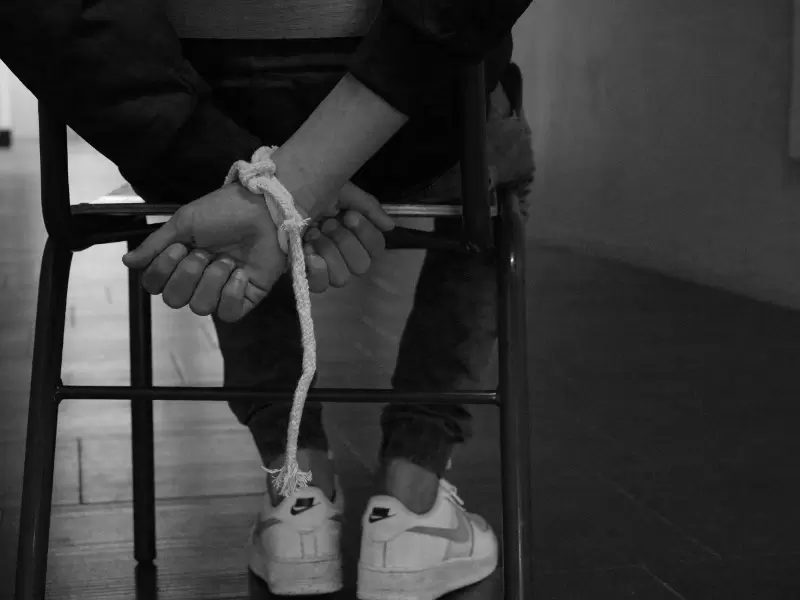
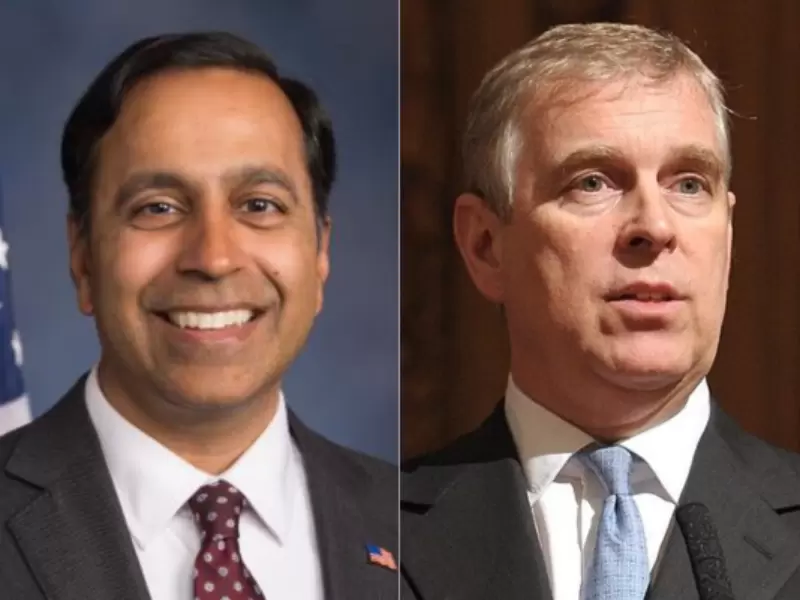
.jpg)



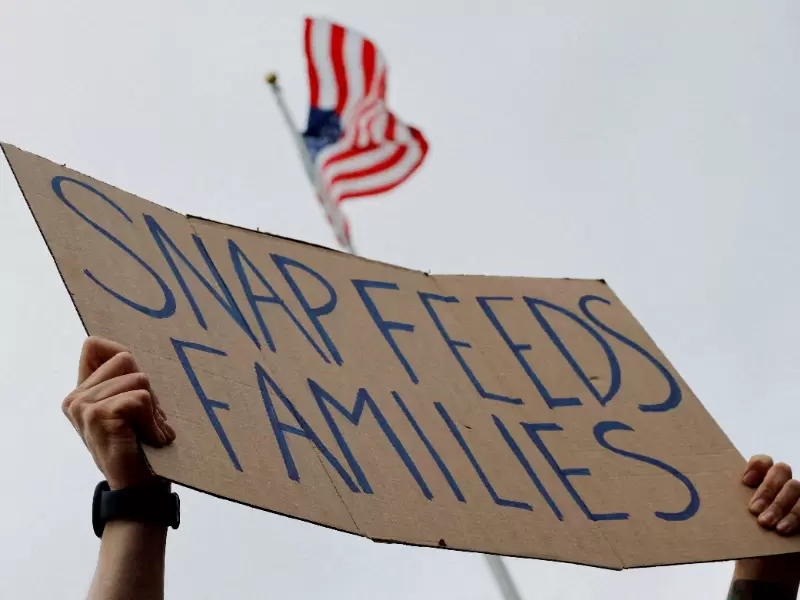


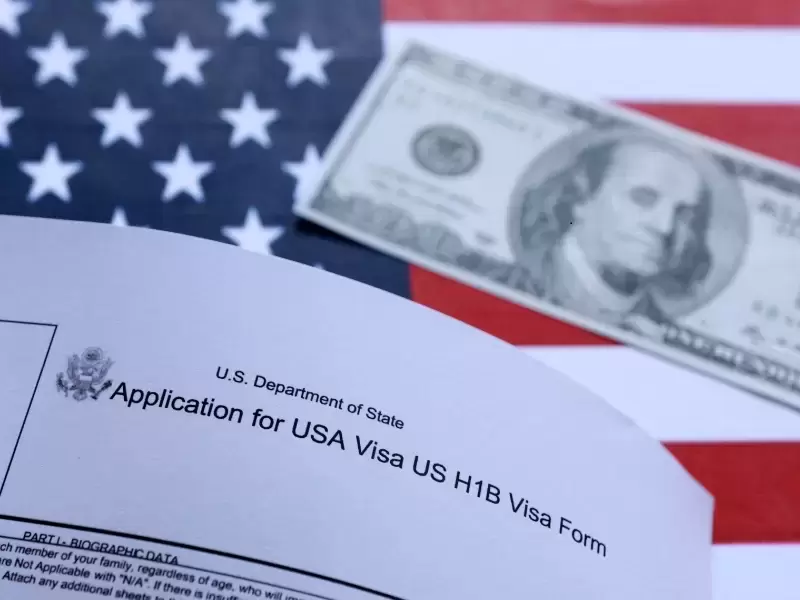

Comments
Start the conversation
Become a member of New India Abroad to start commenting.
Sign Up Now
Already have an account? Login